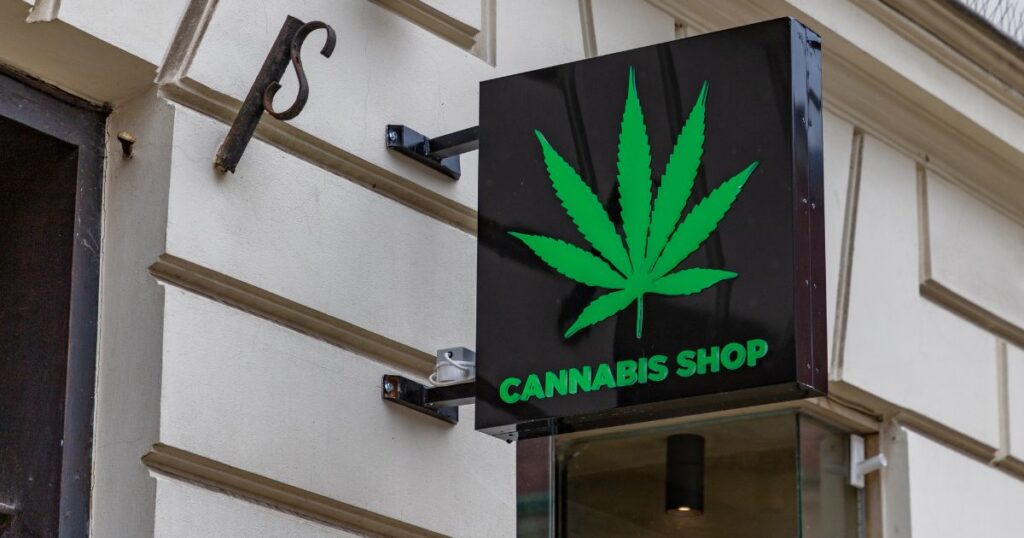The Minnesota cannabis industry reached a milestone this week as the first non-tribal recreational cannabis dispensaries opened their doors, marking the end of a lengthy wait that began when adult-use cannabis was legalized more than two years ago.
Legacy Cannabis in Duluth became the first non-tribal shop to sell recreational cannabis products when it opened at 4:20 p.m. on Tuesday. Meanwhile, established medical cannabis operators Green Goods and RISE began offering adult-use products at multiple locations throughout the state.
This comes after an extended period during which Minnesota adults could legally possess and cultivate cannabis but had limited access to regulated retail products. The state’s Office of Cannabis Management has been working steadily to establish the framework for a licensed cannabis industry, and these openings signal that those efforts are finally bearing fruit.
A Long-Awaited Launch
Minnesota‘s path to retail cannabis sales has been notably lengthy compared to other states. The legalization process began over two years ago when Governor Tim Walz signed the adult-use cannabis legislation into law. Since then, Minnesota residents aged 21 and older have been able to possess up to two ounces of cannabis flower and cultivate plants at home, but retail options remained limited to tribal operations.
The delay in opening non-tribal dispensaries places Minnesota among the states with longer rollout periods for adult-use cannabis programs. While residents waited for retail options to become available, the state’s regulatory framework continued to develop, with the Office of Cannabis Management working to establish licensing procedures and safety standards for the emerging industry.
Supply Chain Challenges
The delayed opening of non-tribal dispensaries stemmed largely from supply chain complications that emerged as the state’s cannabis program developed. Minnesota requires cultivators to grow cannabis sold in state-licensed dispensaries within the state. This created a dependency on in-state cultivation operations..
When the state began issuing retail licenses earlier this year, many shops found themselves in the unusual position of having authorization to sell cannabis but no products available for purchase. Cultivator licenses were issued around the same time as retail licenses. This meant growers needed time to establish operations and produce harvest-ready crops.
The supply constraints meant that even licensed retailers with fully prepared storefronts had to wait for Minnesota-grown cannabis to become available. This created a gap between when shops received their licenses and when they could actually begin serving customers.
Recent developments have helped alleviate these supply issues. The state established compacts with tribal nations, allowing licensed retailers to purchase cannabis products from tribal cultivators. These partnerships have provided the initial inventory that enabled this week’s dispensary openings.
The Office of Cannabis Management has also been working to expand the supply base by conducting lotteries for additional cultivation licenses. These efforts include both social equity applicants and general applicants, with the goal of creating a diverse and robust supply chain for Minnesota’s cannabis market.
Regulatory Framework Takes Shape
Minnesota’s approach to cannabis regulation emphasizes both safety and equity. Adults aged 21 and older can purchase up to two ounces of cannabis flower, eight grams of concentrate, or 800 milligrams of THC in edible products at licensed dispensaries.
The state has implemented a lottery system for various license types, including cultivators, manufacturers, and retailers. This system includes dedicated opportunities for social equity applicants, reflecting Minnesota’s commitment to ensuring that communities disproportionately affected by cannabis prohibition have opportunities to participate in the legal market.
The Office of Cannabis Management has held multiple lottery rounds since early summer, selecting applicants for different types of cannabis business licenses. These lotteries covered everything from small-scale cultivation operations to vertically integrated businesses that can handle multiple aspects of the cannabis supply chain.
Beyond licensing, the state has established safety and testing requirements for cannabis products sold in licensed dispensaries. All products must undergo testing for potency, pesticides, and contaminants before reaching consumers. Detailed labeling requirements ensure customers have access to important information about the products they purchase.
Economic Implications
Minnesota’s cannabis market launch positions the state to capture economic benefits that have been realized in other legal cannabis states. With a population of approximately 5.8 million people, Minnesota represents a significant market opportunity for cannabis businesses.
The state’s geographic position could prove particularly advantageous for cannabis tourism. Minnesota is surrounded by North Dakota, South Dakota, Iowa, and Wisconsin—states that currently have more restrictive cannabis policies. This positioning mirrors successful cannabis markets in other states that have benefited from cross-border commerce.
Minnesota’s cannabis program also includes provisions for tax revenue generation. The state imposes a 10% excise tax on adult-use cannabis sales, with additional local taxes possible in some jurisdictions. The state uses these tax revenues to fund various programs, including substance abuse treatment and community reinvestment initiatives.
Looking Forward
Non-tribal cannabis dispensaries are opening, kicking off expected significant growth in Minnesota’s cannabis industry. As more cultivators come online and supply chains stabilize, consumers can expect to see increased product variety and availability.
The Office of Cannabis Management continues to issue new licenses through its lottery system, with additional retailers, cultivators, and manufacturers expected to enter the market in coming months. This expansion should create more competition and innovation within the industry.
Minnesota focuses on social equity in its licensing program to ensure cannabis legalization benefits communities heavily affected by prohibition enforcement. These businesses aim to drive economic growth in various Minnesota communities.
The state’s regulatory framework also includes provisions for ongoing program evaluation and adjustment. As the market matures, regulators will have opportunities to refine rules and procedures based on real-world experience and stakeholder feedback.
For Minnesota residents, these dispensary openings represent the culmination of a long policy journey and the beginning of a new era of legal cannabis access. As the market continues to evolve and mature, it will undoubtedly shape conversations about cannabis policy throughout the Midwest and beyond.
















